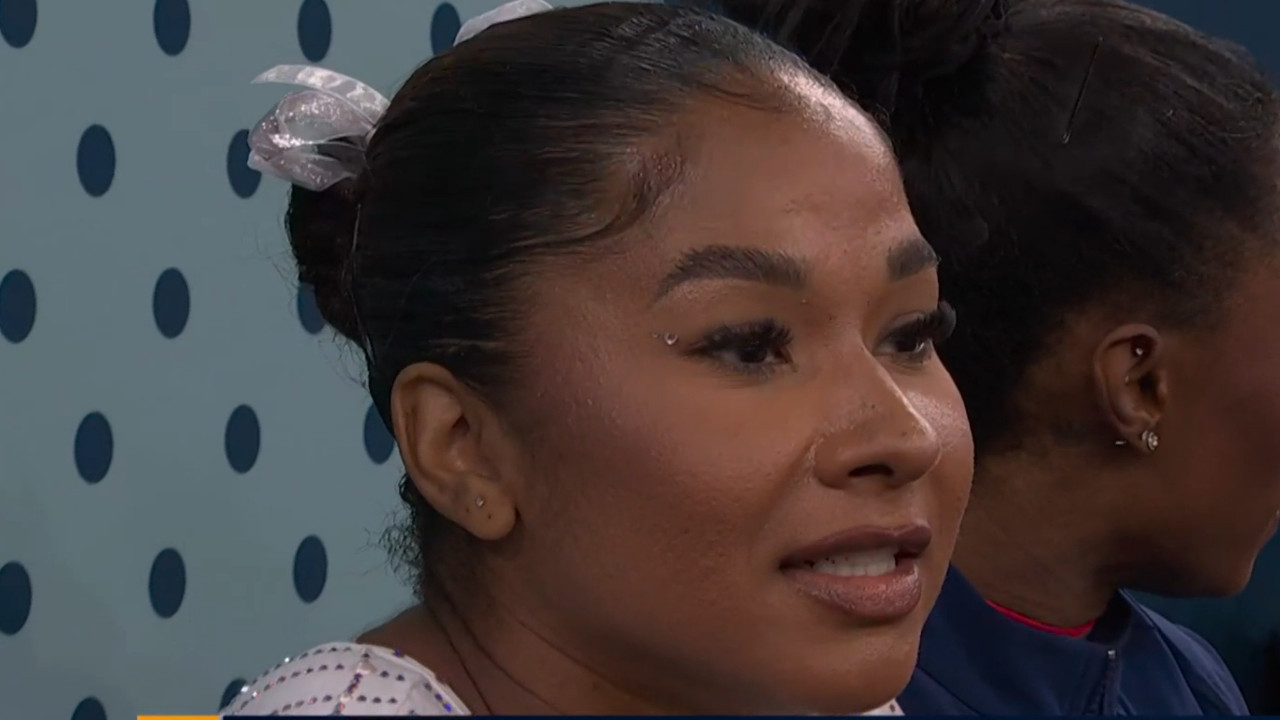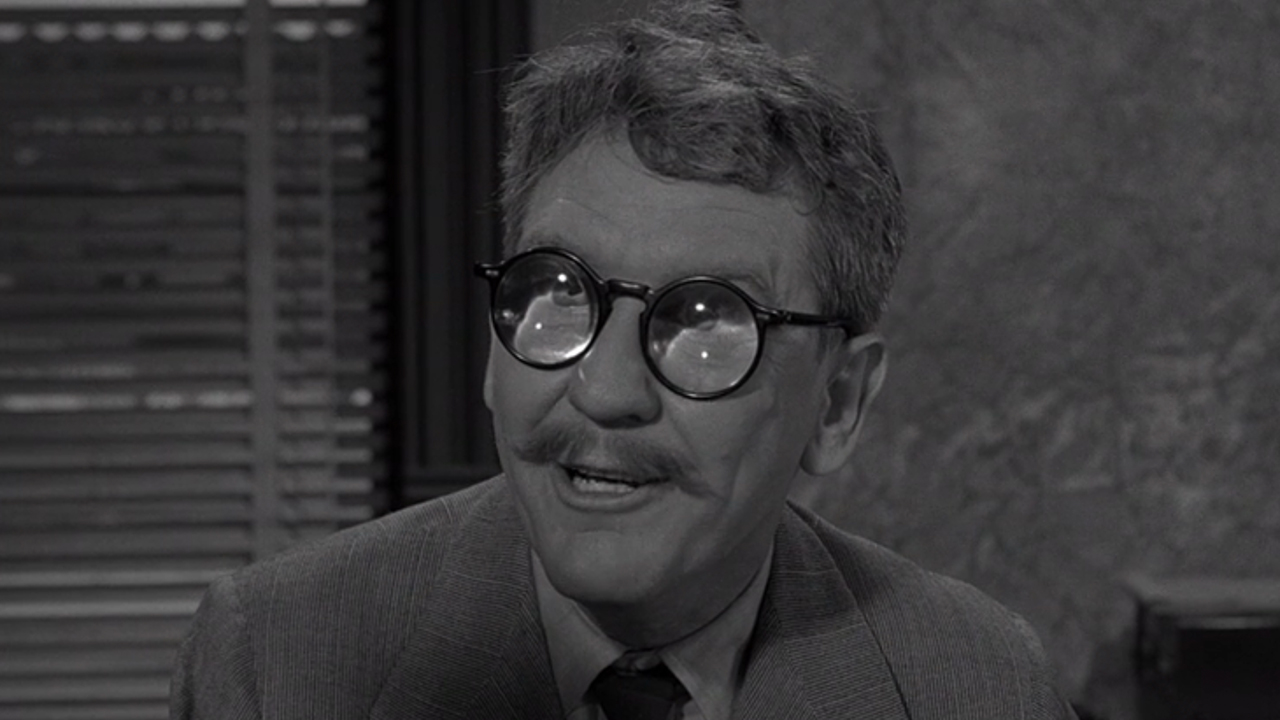After This Jordan Chiles Olympics Mess, Gymnastics Needs To Make A Really Obvious Rule Change
This can't happen again.

It’s been almost a week since the event finals of the women’s floor exercise, and both hardcore gymnastics fans and Olympics casuals are still arguing about what happened and what the right resolution should be. In a sequence of bizarre appeals and court rulings, the bronze medal went from Romania’s Ana Barbosu to The United States’ Jordan Chiles and back again to Barbosu, leading to a mess of hard feelings and exposing how broken and illogical a key gymnastics rule is.
Before we get into the rule though, let’s talk about what happened in closer detail. Romania’s Ana Barbosu scored a 13.7 on floor exercise, which put her in second place behind Rebeca Andrade, who scored a 14.166. Simon Biles later put up a 14.133, which knocked Barbosu down to bronze medal position. Jordan Chiles was the last gymnast to go, which meant if she topped a 13.7, she’d win a medal and if she didn’t, Barbosu would hold on for bronze. Chiles put up a terrific routine, but it was only awarded a 13.666. Barbosu grabbed a Romania flag and celebrated on the mat, but several minutes later, Chiles’ score changed to a 13.766.
Apparently her coach Cecile Landi filed an appeal questioning the difficulty score. The judges had ruled she didn’t complete one of the elements, but Landi decided to file an inquiry because she felt Chiles may have. The panel talked it over and decided to award an additional one tenth of a point to her difficulty score, which changed her total to 13.766, winning her the bronze medal.
A devastated Barbosu left the mat with her coaches and Chiles grabbed a flag and celebrated along with Biles and Andrade. She was later physically awarded the bronze during a traditional medal ceremony, but Romania filed an appeal with The Court Of Arbitration For Sport, arguing Chiles’ coach submitted her appeal too late and it never should have been considered. The Court sided with Romania, and the International Olympic Committee released a statement standing by the ruling. Chiles’ score was officially changed back to a 13.66, which stripped her of the medal and awarded it back to Barbosu.
Not surprisingly, there have been plenty of hard feelings from all directions. Fans on social media sent vicious messages to both gymnasts, leading Chiles to deactivate her entire account for mental health reasons. The Romanian Prime Minister threatened to boycott the closing ceremonies. All of the coaches have released strongly worded statements. Other gymnasts, teammates and legends of the sport have all weighed in on what happened, but for me, there hasn’t been nearly enough conversation about the stupid rule that allowed all of this to happen.
The way gymnastics works at an elite level is every competitor is awarded two scores, a difficulty score and an execution score. If you casually watch gymnastics, you’ve probably heard that difficulty score referred to as a “start value.” The gymnast essentially starts with that, and then it’s added to the execution score, which starts at ten and gets lowered for things like hops on a landing. Sounds easy enough, right?
Well, the problem is the difficulty score can change if a gymnast is determined to not have completed one of their elements. Let’s say, for example, someone was supposed to do three flips in a tumbling pass and instead they did two. This would result in that difficulty score being lowered because they didn’t actually attempt the full difficulty. That’s, in short, what happened with Jordan Chiles. There was a disagreement as to whether she actually completed one of her harder elements, which would affect her start value by a tenth of a point.
CINEMABLEND NEWSLETTER
Your Daily Blend of Entertainment News
Now, there’s a process for what happens when there’s disagreement on the start value. In fact, there’s an entire section about this in the Gymnastics Handbook, and after this mess, it needs an obvious change. Let me quote from it…
Inquiries for the Difficulty Score are allowed, provided they are made verbally immediately after the publication of the score or at the very latest before the score of the following gymnast/ athlete or group is shown…. For the latest gymnast or group of a rotation, this limit is one minute after the score is shown on the scoreboard. The person designated to receive the verbal inquiry has to record the time of receiving it, either in writing or electronically, and this starts the procedure
Jordan Chiles, who won a gold alongside Simone Biles, Suni Lee, Jade Carey and Hezley Rivera in the team event, was the last gymnast to go during the event finals. That means, according to the rule, her coach had one minute to file the appeal. The Court Of Arbitration For Sport later ruled her coach filed the appeal one minute and four seconds after the score was shown on the scoreboard, meaning it shouldn’t have been considered and was retroactively disqualified from consideration. But that’s a night and day difference from what all of the other gymnasts got. In fact, I went back and watched what happened after Ana Barbosu’s routine, and the time between when her score was announced and when the following gymnast’s score was announced was more than four minutes. Some of the spaces between competitors were even longer.
Inquiries are a necessary part of gymnastics. The judges don’t always get start values correct, and coaches should have an opportunity to question them on it, since they’re, in theory, objective, not subjective. But the way the rules are written right now is a mess, and we have seen that played out to the detriment of both Chiles and Barbosu, who have been caught in the middle of this nonsense. It makes no sense that one athlete would get over four minutes to challenge their score and another would have their appeal disqualified after a minute and four seconds. That has to change immediately, but beyond that, I also think there’s an opportunity to make a broader change.
Right now, scores go up as if they’re immediately finalized, and everyone reacts as if they’re immediately finalized. That leads to celebrations from the winners, but the truth is the score isn’t finalized until that appeals process is over. Aly Raisman was famously the beneficiary of one of these appeals in the 2012 Olympics, when an inquiry changed her difficulty score and helped her beat Catalina Ponor from, you guessed it, Romania. There have also been numerous other instances in Olympic finals that have shifted the final standings. Why not change the rule so a score is preliminary until the time to appeal officially runs out? If gymnasts are going to be appealing start values and judges are going to be very open to hearing those cases, why not add clearer language around the rules? I’ll recommend the following…
All gymnasts and coaches have 90 seconds to appeal the difficulty score once it appears on the scoreboard in yellow. All yellow scores are considered preliminary until they are finalized, either when the 90 seconds runs out or if an inquiry is filed, when the results of that inquiry are confirmed. No changes will be made to scores afterwards, and the results will be considered final, at which point they will turn red.
I know it sounds really arbitrary, but these athletes are putting thousands of hours of time into the gym. They’re dedicating their entire lives to excelling at gymnastics, and the Olympics, sometimes strange as they might be, are the pinnacle of gymnastics. There needs to be clear and consistent rules about how inquiries are made, and there needs to be an easier way for gymnasts to know when scores are being appealed and when they’re finalized. What happened here should never happen again. What happened to Jordan Chiles and Ana Barbosu should never happen again. Here’s to hoping it doesn’t.
Mack Rawden is the Editor-In-Chief of CinemaBlend. He first started working at the publication as a writer back in 2007 and has held various jobs at the site in the time since including Managing Editor, Pop Culture Editor and Staff Writer. He now splits his time between working on CinemaBlend’s user experience, helping to plan the site’s editorial direction and writing passionate articles about niche entertainment topics he’s into. He graduated from Indiana University with a degree in English (go Hoosiers!) and has been interviewed and quoted in a variety of publications including Digiday. Enthusiastic about Clue, case-of-the-week mysteries, a great wrestling promo and cookies at Disney World. Less enthusiastic about the pricing structure of cable, loud noises and Tuesdays.










